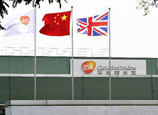
Funds wasted by those in local government are drain on economy and will badly hamper urgently needed reforms
Daily news reports from China often provide vivid, sometimes shocking, fodder for textbook theorists.
Not long ago, Paul Krugman, the Nobel Laureate in economics, wrote about China's overdue transition from an economy driven primarily by investment to one that draws a larger share of its growth from consumption.
Citing the theory of economist Arthur Lewis (1915-1991), who was awarded the Nobel Prize in 1979, Krugman indicated that China's rapid growth in its modernizing period has already hit its limit and the country is in bigger trouble than many investors expected.
As returns from investment are helplessly in decline, China's economy needs rebalancing. But this reform is slow in coming, Krugman noted.
Almost at the same time, there was a report in the Chinese business press from the State Oceanic Administration saying that the "almost maddening" land-filling activities along China's coast in the past decade have created at least 1,100 square kilometers of new land for "development". This has not only reduced the country's pristine coastline, but also damaged the dynamic balance of the coastal environment.
From 1994 to 2010, along a narrow band on the map from Tianjin to Tangshan, in Hebei province, 450 sq kms of "new land" was created, researchers said.
Massive investment projects led by local governments are going from one city to another to reclaim the seashore, flatten the hills, redirect the rivers and remove entire villages and townships.
In one example, in 2009, in the thick of the global financial crisis, a Buddhist temple could embark on a 5 billion yuan ($814 million) project to develop itself into a tourist attraction.
The funds were, of course, guaranteed by the local government. The project has so far generated nothing in return.
Despite such fiascos, the passion for investment has never died out. Last weekend, a friend from a domestic fund told me that, even when the central bank has been tightening credit supply, investment officers continue to receive numerous proposals requiring more than 10 billion yuan.
Premier Li Keqiang and Finance Minister Lou Jiwei must have been aware of how many big-ticket investment projects were going on in China and how much money they were gobbling up. But no mathematical modeling could ascertain how much damage those wasteful projects have done and are doing to society.
Now, most local governments are prisoners of the investment projects they began in haste and are regretting at leisure because they did not have the resources to take the projects to a profitable conclusion.
Therefore, it is unrealistic to expect a rapid rise in consumer spending in China. All the old investments have a double dampening effect by channeling society's money away from consumers and by supporting often excessively large projects that offer little use to small private companies.
As for the government, officials need to go through a thought-provoking learning process to realize that some things are more important than just big money and big numbers.
They also have to learn how to create jobs without building new factories, to generate prosperity (and tax revenue) without spending a lot of public funds and, perhaps, to sell some of their useless projects to turn-around managers from the private sector.
Before the country goes through a process like this, it is highly likely some investors will lose money on China, including those involved in urban housing projects from second-tier cities down. They will lose their investment in manufacturing than in the service sector.
They will be at even greater risk if the companies in which they invested have been collaborating with local governments in uneconomical development projects, especially the very large ones based on filling in the sea or leveling a mountain.
The investors at most risk are those whose funds are in wealth management products that channel funds for local governments.
















 Working under 40 degrees Celsius
Working under 40 degrees Celsius


![]()
